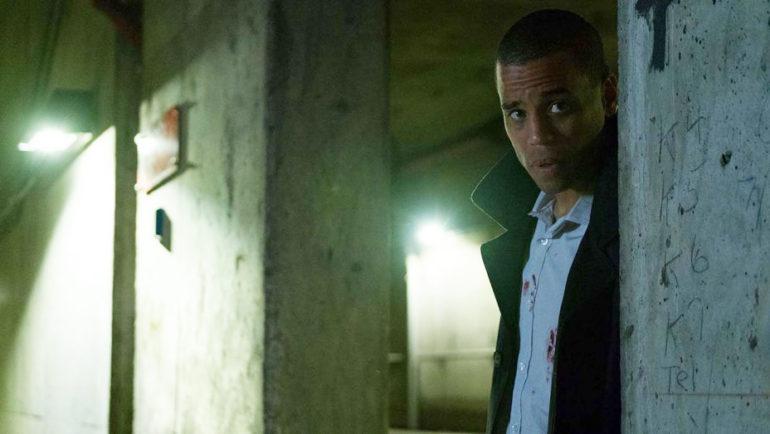Film Review: ‘Jacob’s Ladder’
By Owen Gleiberman
LOS ANGELES (Variety.com) – It’s understandable that someone would want to remake “Jacob’s Ladder,” Adrian Lyne’s 1990 head-trip thriller about a Vietnam veteran haunted by fragmentary nightmare visions. I was far from alone in finding the original to be an overwrought but rather thin “psychological” horror film that was more punishing than pleasurable. And it wasn’t exactly a hit, grossing just $26 million in the U.S. Yet it’s easy to see why “Jacob’s Ladder,” over the years, became a bit of a cult movie. It has some astonishing bad-acid-trip imagery (the Francis Bacon-meets-FX quivery heads, etc.), and consumed late at night it conjures a certain random hallucinatory relentlessness that anticipates the throw-demons-at-the-wall-and-see-if-they-stick scare-cinema tactics of the digital era.
That’s why you’d expect a remake of “Jacob’s Ladder” to come out of the glossy megaplex fear processor, the one that gave us all those remake/sequels to “The Texas Chain Saw Massacre,” “The Thing,” “The Ring,” “The Evil Dead,” and other sensational contempo horror milestones. With a filmmaker like James Wan or Kiyoshi Kurosawa or Sam Raimi at the helm, it could have been, if nothing else, a state-of-the-art mind-f—k.
Instead, the new version of “Jacob’s Ladder,” directed by David M. Rosenthal, is one of those low-budget, no-atmosphere indie productions that has lurid utilitarian lightning, outdoor scenes that look like they were shot in the back alleys of Toronto (I’m not saying they were — just that they feel that way), and a lurching stop-and-start rhythm. You can forge a decent drama out of elements this scrappy, but not necessarily a film like “Jacob’s Ladder.”
In the new version, when Jacob Singer (Michael Early), a trauma surgeon who works at the Atlanta VA hospital, sees visions that echo the ones in the original film (phantoms on the subway, worms under his wife’s skin, one of those sinister vibrating heads), the visual effects aren’t bad, but they aren’t lavish enough to conjure the momentary tingle of dread that Adrian Lyne did. In the 30 years since “Jacob’s Ladder,” a lot of hallucinatory bat-house imagery has passed under the bridge. A few token, pasted-in fear shots won’t cut it.
But if the new version falls flat as midnight-movie spectacle, it’s at least built around a promising idea of inner hell. Jacob keeps getting hints that his brother, Isaac (Jesse Williams), a casualty of the war in Afghanistan, is actually still alive. Then, in a subway tunnel, he finds him. Jacob, married to the tough but tender Samantha (Nikki Beharie), with an infant son, has the “perfect” life. Whereas Isaac, haunted by his wartime experiences, is falling apart. He appears to be a victim of HDA, an experimental drug approved by the government to treat veterans with post-traumatic stress disorder, only the side effects are such that the drug causes more trauma than it cures. We brace ourselves for a rotely “paranoid” anti-government conspiracy movie (which is what the original “Jacob’s Ladder,” beneath its imagery, basically was).
The new version, though, actually wants to be more of a head trip. It’s not just that Jacob keeps seeing things; it’s that his entire life may be an illusion — a dream he sheds as the movie goes on. At a certain point, “Jacob’s Ladder” starts to feel more like a cut-rate version of David Lynch’s “Mulholland Drive,” a tale in which the ultimate nightmare is waking up inside a new identity. Michael Ealy acts this out with an existential fear that’s vivid and convincing. Yet even here, the essential scrappiness of the film remains. The new “Jacob’s Ladder” plays like a half-hearted sketch of the movie it could have been. Given that, I’d say that it might actually not be a bad idea to remake “Jacob’s Ladder” again, only this time with a genuine update of the creepy-freaky imagery, as well as a story that, at last, does it justice.

